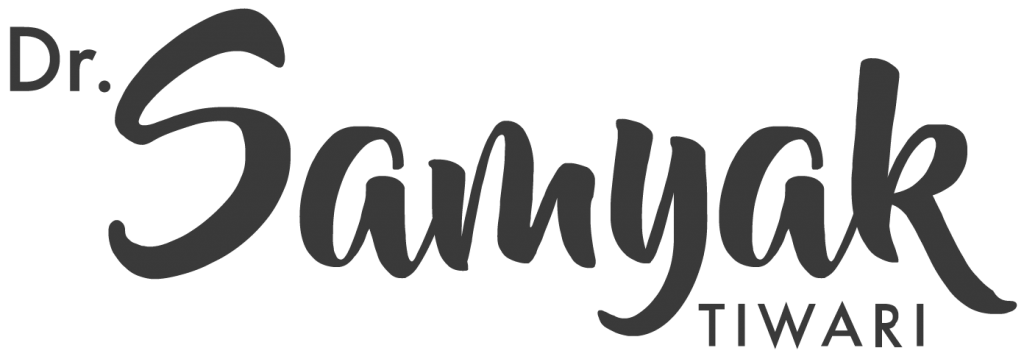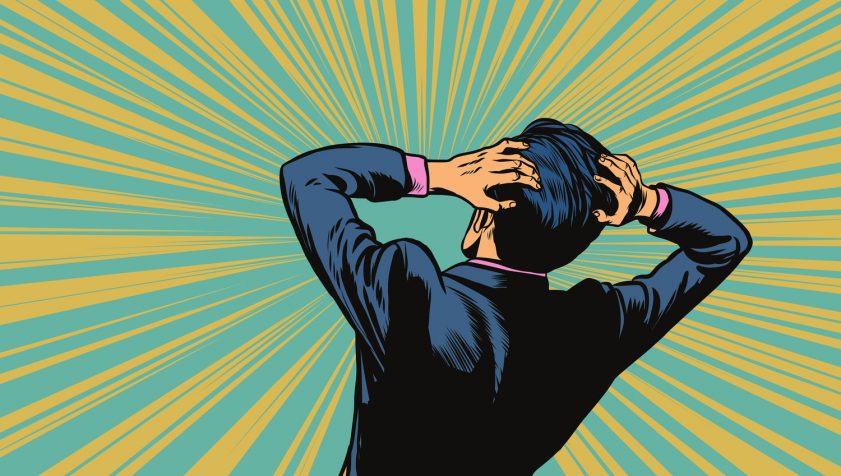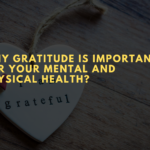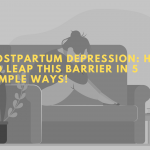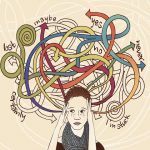We have read a lot about OCD but the matter of concern is that the symptoms of OCD are somewhat similar to other mental disorders as well, then how to identify OCD using those symptoms??
Well, OCD is one of the most under-rated mental disorders, many people are unaware of the disease, therefore, people don’t know much about how to identify OCD on their own!!
In the previous articles, we discussed everything about OCD from what is OCD to it’s symptoms, cause, and cure. All that is left to discuss about is to know about how to identify OCD…
But first, let’s have a quick revision about what is obsession and compulsion…
Obsessions & Compulsions In OCD
While reading about how to identify OCD it is a must for you to know that obsessions are automatic contemplations, pictures, or driving forces that happen again and again in your brain.
You would prefer not to have these thoughts, yet you can’t stop them. Lamentably, these over the top considerations are frequently upsetting and diverting.
Whereas compulsions are practices or customizations that you feel headed to carry on over and over.
As a rule, compulsions are acted trying to cause obsessions to disappear. For instance, in case you’re anxious about sullying, you may create expanded cleaning customs. Be that as it may, the help never keeps going.
Indeed, the best considerations as a rule return more grounded. What’s more, the habitual customs and practices regularly wind up causing uneasiness themselves as they become all the more requesting and tedious. This is the endless loop of OCD.
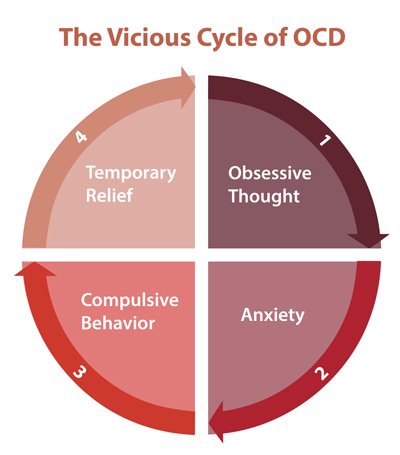
A great many people with OCD can be categorized as one of the accompanying classes:
- Washers fear to taint. They normally have a cleaning or hand-washing impulses.
- Checkers over and again check things (stove killed, entryway bolted, and so on.) that they partner with mischief or threat.
- Cynics and heathens are worried about the possibility that if everything isn’t great or done perfectly something horrible will occur, or they will be rebuffed.
- Counters and arrangers are fixated on hand and balance. They may have odd notions about specific numbers, hues, or courses of action.
- Hoarders dread that something terrible will occur in the event that they discard anything. They habitually crowd things that they don’t need or use. They may likewise experience the ill effects of a different issue, for example, discouragement, PTSD, urgent purchasing, thievishness, ADHD, skin picking, or spasm issue.
So these are a few things that can help you identify a person who is suffering from OCD, but this is not just it:
Let’s talk about the signs and causes of OCD and then move to a detailed section about how to identify OCD
Signs and Symptoms OF OCD
Just because you have obsessive contemplations or perform impulsive practices doesn’t imply that you have obsessive-compulsive disorder. With OCD, these contemplations and practices cause colossal misery, occupy a great deal of time (in any event one hour out of every day), and meddle with your day by day life and connections.
A great many people with obsessive-compulsive disorder have the two obsessions and compulsions, yet a few people experience only either.
Basic obsessive thoughts in OCD include:
- The fear of being debased by germs or earth or sullying others
- The dread of losing control and hurting yourself or others
- Nosy explicitly unequivocal or vicious considerations and pictures
- Unnecessary spotlight on strict or moral thoughts
- The dread of losing or not having things you may require
- Request and evenness: the possibility that everything must arrange “perfectly”
- Odd notions; extreme regard for something thought about fortunate or unfortunate
Common compulsions in OCD include:
- Exorbitant twofold checking of things, for example, locks, machines, and switches
- Over and over monitoring friends and family to ensure they’re sheltered
- Tallying, tapping, rehashing certain words, or doing different silly things to diminish uneasiness
- Investing a great deal of energy washing or cleaning
- Requesting or organizing things “just so”
- Supplicating exorbitantly or taking part in customs activated by strict dread
- Collecting “garbage, for example, old papers or void food compartments
10 Things You Must Know About How To Identify OCD
While the skills of how to identify OCD are a bit tricky and the symptoms are common for other diseases too, there still are 10 small observations you might know about if you wish to know about how to identify OCD.
while reading about how to identify OCD you already read about the symptoms of OCD now this is a detailed section for those symptoms so can know how to identify OCD and when to seek help in detail:
Hand-Washing
The first symptom you to look for finding out how to identify OCD is a compulsive hand-washing or hand sanitizer use, which is so predominant in OCD that “washers” has become a broadly acknowledged classification of OCD patients. The desire ordinarily originates from dread of germs (the most well-known obsession seen in OCD), yet it additionally can be established in fears of making others debilitated or of being unclean or improper.

When to look for help: If you consider germs significantly in the wake of washing your hands, stress that you’re not scouring all-around properly, or have nonsensical feelings of dread about infection, (for example, getting HIV from a shopping basket), it could be one of the signs about how to identify OCD and that your hand-washing is impulsive.
Overzealous Cleaning
Individuals with OCD who fall into the “washers” classification likewise will in general clean overzealously. Similarly, as with hand-washing, housecleaning is regularly a method of facilitating germaphobia or sentiments of debasement. Despite the fact that cleaning can help pursue these obsessions away, the alleviation doesn’t last, and the inclination to clean is regularly considerably more grounded whenever.
When to look for help: While learning about how to identify OCD you should know that if you go through hours daily cleaning, it’s more likely than not identified with OCD, yet it’s harder to know whether cleaning for an hour daily could be an indication of OCD.
Checking Conduct
Alleged checking behaviors—returning three, four, or even multiple times to ensure the stove is off or the front entryway is bolted—are the most well-known impulses you must know while knowing about how to identify OCD, influencing almost 30% of individuals with the confusion. Like other compulsive practices, checking can be driven by an assortment of obsessions, going from a dread of getting injured to profound situated sentiments of flippancy.
When to look for help: It’s typical to twofold check something every now and then. In any case, if checking meddles with your day by day life (by making you behind schedule for work, say), or turns into a custom that you can’t manage without, it could be helpful for a person who wishes to know about how to identify OCD.
Checking
While doing research about how to identify OCD I got to know that there are a few people with OCD who perform errands as indicated by a specific numeric example or consider to themselves they do ordinary things, (for example, climbing steps or cleaning). These practices might be driven by odd notions. For example, a conviction that the number seven is acceptable may lead somebody to feel that they’ll hurt themselves or another person on the off chance that they don’t make seven strides at a time.
When to look for help: Tallying can be a decent interruption as you stroll to your vehicle or climb the steps to your office. “In the event that it doesn’t trouble you or any other individual, you are fine,” but if this starts to bother you or someone else around you then you must realize that this is how to identify OCD and should get immediate help.
Association
Individuals with OCD can take sorting out to the degree of compulsiveness. It needs to feel perfect, look perfect, be balanced, be the correct number [of items]. This fastidiousness is regularly determined by fixations on hand and evenness.

When to look for help: While learning about how to identify OCD one must know that OCD enters when wants to become a have to. Individuals with OCD may not really need to sort out their work area however feel they should, so as to diminish their tension.
Fears of Violence
Everyone has passing considerations about the chance of being influenced by brutality or different hardships. The more we attempt to maintain a strategic distance from contemplations like this, the more they fly into our heads, research about how to identify OCD shows—and this have all the earmarks of being particularly valid for individuals with OCD. They “could be investing more energy to suppress these musings”, “or they may respond all the more strongly to them since they esteem them as inadmissible.”
When to look for help: It’s essential to perceive that we as a whole have periodic dull contemplations. In any case, it could be an indication of OCD if considerations of getting robbed cause you to maintain a strategic distance from the recreation center, for instance, or if worry for your mom’s wellbeing spikes you to consider her few times each day.
Undesirable Sexual Thoughts
Much the same as fierce contemplations, repeating undesirable thoughts about wrong or untouchable sexual conduct is often considered an important sign of how to identify OCD. Patients may envision for a moment that they are going to grab their collaborator or attack a youngster or marvel on the off chance that they are gay rather than straight (or the other way around).
When to look for help: “A great many people can say, ‘Gracious, I would prefer truly not to do that or it doesn’t speak to who I am as an individual”, ‘These contemplations are horrible, nobody else has them, what do they mean about me.'” Changing your conduct because of these musings—keeping away from gay companions or a colleague you’ve pondered explicitly, for example—is another point for how to identify OCD.
Harping On Connections
Another important point about how to identify OCD is that individuals with OCD are known to fanatically analyze their associations with companions, collaborators, sentimental accomplices, and relatives. For instance, they may harp finally on whether a spur of the moment remark at work estranged a colleague, or whether a little misconstruing demolished a sentimental relationship. This outlook may mirror a misrepresented awareness of other’s expectations and trouble tolerating vulnerability.
When to look for help: “Saying a final farewell to a sweetheart can cause anybody ‘to fixate,’ regardless of whether they have OCD,”. However, it might be an indication of OCD if considerations like this stall out in your mind and snowball into obsessive self-uncertainty or fears of being a terrible individual.
Looking for consolation
One sign you can observe while knowing about how to identify OCD is that a person with OCD attempts to relieve their tension by requesting the assessment of their loved ones. In the event that they’re concerned they humiliated themselves at a gathering, for example, they may more than once request that a companion replay the occurrence. Requesting that companions say something (“Does my home appear to be grimy to you?”) can likewise be a technique for keeping away from enthusiastic practices.
When to look for help: Everyone utilizes their companions as a sounding board, yet in the event that you discover yourself rehashing a similar inquiry again and again—or if your companion brings up this—it could flag OCD. In addition, the consolation you get from friends and family could be empowering your obsessiveness.

Questioning your Looks
Body dysmorphic disorder (BDD) is a condition identified with OCD in which individuals focus on a piece of their body they think about irregular or ugly—frequently their nose, skin, or hair. (In contrast to dietary problems, BDD doesn’t include attention on weight or diet changes.) The obsessions related to BDD are fundamentally the same as those seen in OCD. Numerous individuals with BDD likewise have OCD and stress over the tidiness of their body notwithstanding what it looks like.
When to look for help: It’s typical to despise a few parts of your body. Yet, individuals with BDD may go through hours daily checking the mirror. “You exaggerate that it is so essential to you and others and may abstain from being around individuals”, this can be another important point for to know about how to identify OCD.
Identified If You Have OCD or not?
These points mentioned above about how to identify OCD are certainly going to help you know if you or someone close to you is suffering from the disease or not!!
What if you are suffering from OCD??
What’s gonna be the next step??
well. instead of panicking you must go and consult a psychiatrist who can help you recover from OCD.
In case, you don’t have any idea about all this you call us at 9889493508 and get yourself a session booked with the best psychiatrist in Lucknow.
